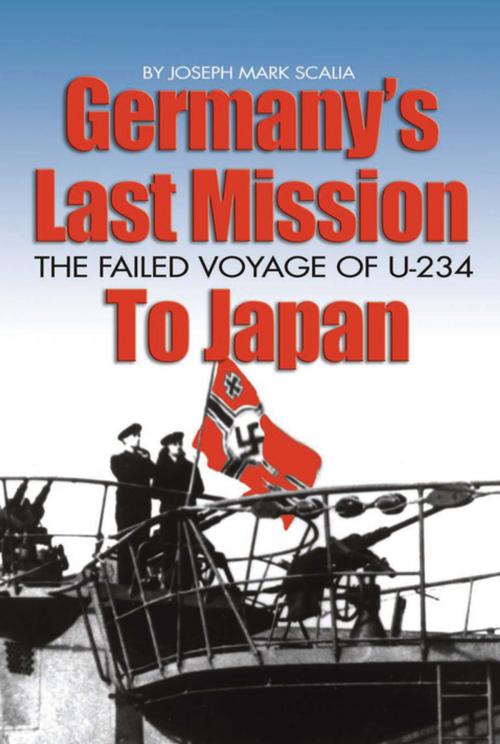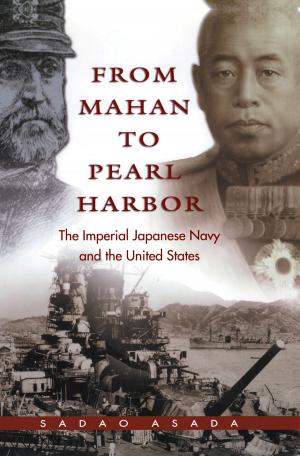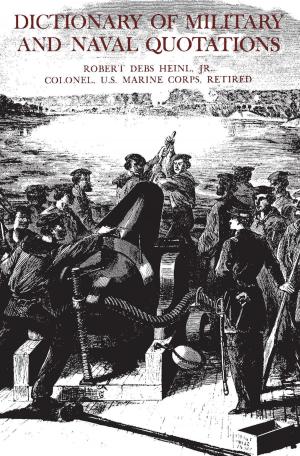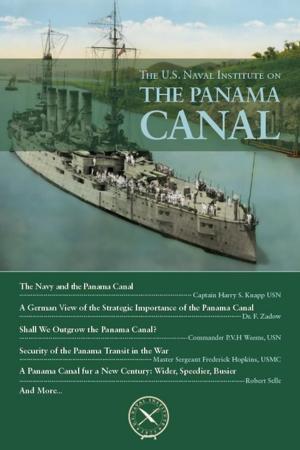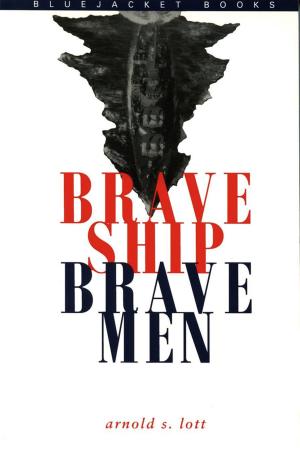Germany's Last Mission to Japan
The Failed Voyage of U-234
Nonfiction, History, Military, World War II| Author: | Joseph Mark Scalia | ISBN: | 9781612515250 |
| Publisher: | Naval Institute Press | Publication: | February 15, 2014 |
| Imprint: | Naval Institute Press | Language: | English |
| Author: | Joseph Mark Scalia |
| ISBN: | 9781612515250 |
| Publisher: | Naval Institute Press |
| Publication: | February 15, 2014 |
| Imprint: | Naval Institute Press |
| Language: | English |
When U-234 slipped out of a Norwegian harbor on her maiden voyage in March 1945, the submarine carried a precious assortment of armaments and a select group of officials destined for Japan. En route came word that Germany had surrendered, and the boat's commander, Johann Heinrich Fehler, suddenly found himself in a rogue submarine. U-234 was not only loaded with the most technically advanced weaponry and electronic detection devices of the era, but also two Japanese naval officers still at war with the Allies who preferred death to surrender. This dramatic account of the fateful voyage offers an intriguing look at the individuals involved. Until now, the legacy of U-234 has centered on her ominous cargo, including 560 kilograms of uranium oxide, the presence of which has been the focus of countless theories and conjecture.
With this book Joseph Mark Scalia argues that the submarine's value lies not in her inanimate cargo but in the individuals accompanying the material to Japan. Through exhaustive research into U.S. Navy interrogation records, European and Japanese archives, and interviews with former U-234 crewmembers and other principals, Scalia has produced a fascinating portrait of proud warriors coping with defeat. Among them was a high-ranking naval judge sent to Tokyo to purge the residual elements from an infamous spy ring, an anti-aircraft and air defense expert, a top naval construction engineer, a radar expert, a Messerschmitt designer who later became project manager for the F-105 Thunderchief, and a Luftwaffe general who directed the 1939 aerial blitz of Poland and was implicated in the 1944 plot to assassinate Hitler.
Because this is the first book to be solely devoted to U-234, it also provides a thorough examination of the 1600-ton Type XB minelaying submarine, from launch to surrender on 15 May 1945 to an American destroyer. In addition, the work evaluates the technology carried aboard--an actual ME-262 fighter and masking measures for submarines were included--and places the mystery of the uranium oxide cargo in perspective.
With this book Joseph Mark Scalia argues that the submarine's value lies not in her inanimate cargo but in the individuals accompanying the material to Japan. Through exhaustive research into U.S. Navy interrogation records, European and Japanese archives, and interviews with former U-234 crewmembers and other principals, Scalia has produced a fascinating portrait of proud warriors coping with defeat. Among them was a high-ranking naval judge sent to Tokyo to purge the residual elements from an infamous spy ring, an anti-aircraft and air defense expert, a top naval construction engineer, a radar expert, a Messerschmitt designer who later became project manager for the F-105 Thunderchief, and a Luftwaffe general who directed the 1939 aerial blitz of Poland and was implicated in the 1944 plot to assassinate Hitler.
Because this is the first book to be solely devoted to U-234, it also provides a thorough examination of the 1600-ton Type XB minelaying submarine, from launch to surrender on 15 May 1945 to an American destroyer. In addition, the work evaluates the technology carried aboard--an actual ME-262 fighter and masking measures for submarines were included--and places the mystery of the uranium oxide cargo in perspective.
When U-234 slipped out of a Norwegian harbor on her maiden voyage in March 1945, the submarine carried a precious assortment of armaments and a select group of officials destined for Japan. En route came word that Germany had surrendered, and the boat's commander, Johann Heinrich Fehler, suddenly found himself in a rogue submarine. U-234 was not only loaded with the most technically advanced weaponry and electronic detection devices of the era, but also two Japanese naval officers still at war with the Allies who preferred death to surrender. This dramatic account of the fateful voyage offers an intriguing look at the individuals involved. Until now, the legacy of U-234 has centered on her ominous cargo, including 560 kilograms of uranium oxide, the presence of which has been the focus of countless theories and conjecture.
With this book Joseph Mark Scalia argues that the submarine's value lies not in her inanimate cargo but in the individuals accompanying the material to Japan. Through exhaustive research into U.S. Navy interrogation records, European and Japanese archives, and interviews with former U-234 crewmembers and other principals, Scalia has produced a fascinating portrait of proud warriors coping with defeat. Among them was a high-ranking naval judge sent to Tokyo to purge the residual elements from an infamous spy ring, an anti-aircraft and air defense expert, a top naval construction engineer, a radar expert, a Messerschmitt designer who later became project manager for the F-105 Thunderchief, and a Luftwaffe general who directed the 1939 aerial blitz of Poland and was implicated in the 1944 plot to assassinate Hitler.
Because this is the first book to be solely devoted to U-234, it also provides a thorough examination of the 1600-ton Type XB minelaying submarine, from launch to surrender on 15 May 1945 to an American destroyer. In addition, the work evaluates the technology carried aboard--an actual ME-262 fighter and masking measures for submarines were included--and places the mystery of the uranium oxide cargo in perspective.
With this book Joseph Mark Scalia argues that the submarine's value lies not in her inanimate cargo but in the individuals accompanying the material to Japan. Through exhaustive research into U.S. Navy interrogation records, European and Japanese archives, and interviews with former U-234 crewmembers and other principals, Scalia has produced a fascinating portrait of proud warriors coping with defeat. Among them was a high-ranking naval judge sent to Tokyo to purge the residual elements from an infamous spy ring, an anti-aircraft and air defense expert, a top naval construction engineer, a radar expert, a Messerschmitt designer who later became project manager for the F-105 Thunderchief, and a Luftwaffe general who directed the 1939 aerial blitz of Poland and was implicated in the 1944 plot to assassinate Hitler.
Because this is the first book to be solely devoted to U-234, it also provides a thorough examination of the 1600-ton Type XB minelaying submarine, from launch to surrender on 15 May 1945 to an American destroyer. In addition, the work evaluates the technology carried aboard--an actual ME-262 fighter and masking measures for submarines were included--and places the mystery of the uranium oxide cargo in perspective.
